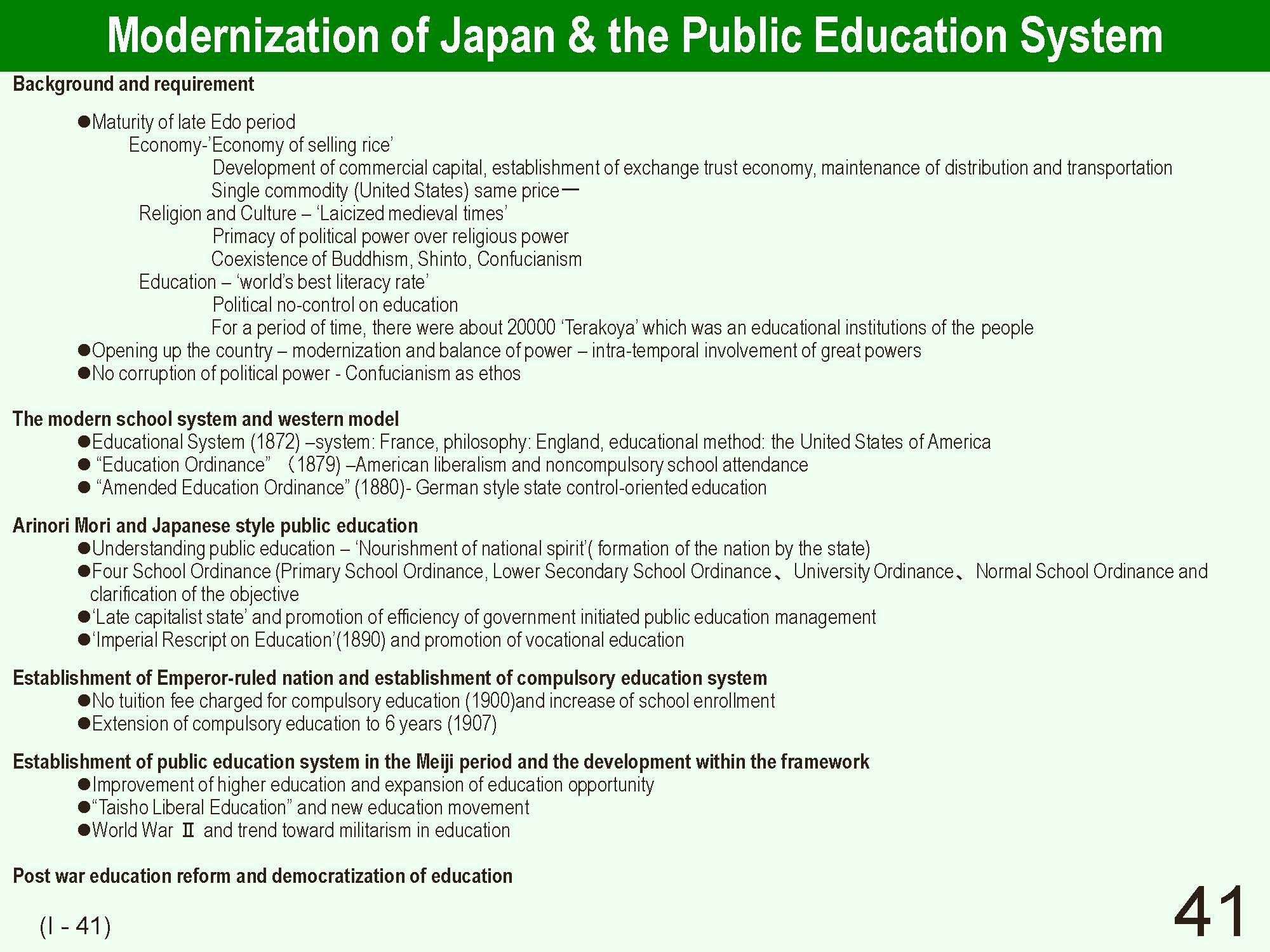| 41 | gI Outline of Japanese School Systemh | Previous | Next | JAPANESE |
|---|---|---|---|---|
 |
||||
| It is said at international meetings that education largely contributed to the modernization of Japan. However, the development of the Japanese social system before the Meiji period contributed to the modernization of Japan involving a shift from the feudal period to a modern state. Moreover, the spread of the eTerakoyaf as educational institutions for the people leading to the worldfs highest educational enrollment rates largely contributed to the establishment of Japanfs modern public educational system. The establishment and the development of the modern public educational system in Japan during the Meiji period went through 3 stages. These were (a) the introduction of the developed western model during the early Meiji period, (b) the establishment of a Japanese style system by Arinori Mori, the first Minister of Education, and (c) the provision of free tuition for compulsory education accompanied by the extension of compulsory education parallel with improvements in enrollment rates. After that, by intensifying eImperial nationalism and framing the objectives of education in terms of national control over values, Japan efficiently achieved such objectives within the framework of establishing a ewealthy nation and strong armyf and a modern capitalist state. Japan also became a politically and economically homogeneous nation but education then moved towards militarism both prior to and during World War II. During this period, education was extremely controlled by the prevailing militaristic ideology that lacked rationality. Finally, this educational system collapsed. After World War II, under the leadership of the United States, reforms promoting democratization of education were instituted. The sovereignty of the people in education and educational rights were ensured and these reforms in turn contributed to social reforms and social development during the post-war period. | ||||
Please send your comments and concerns here
kamada@criced.tsukuba.ac.jp
Center for Research on International Cooperation in Educational Development(CRICED) University of Tsukuba
1-1-1, Tennodai, Tsukuba-shi, IBARAKI
305-857, JAPAN